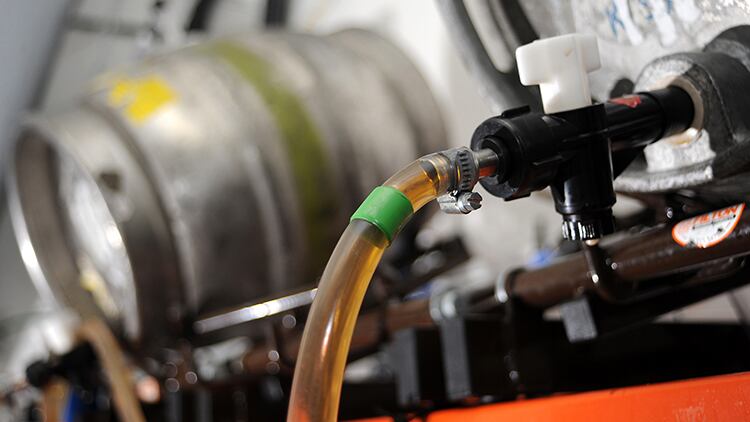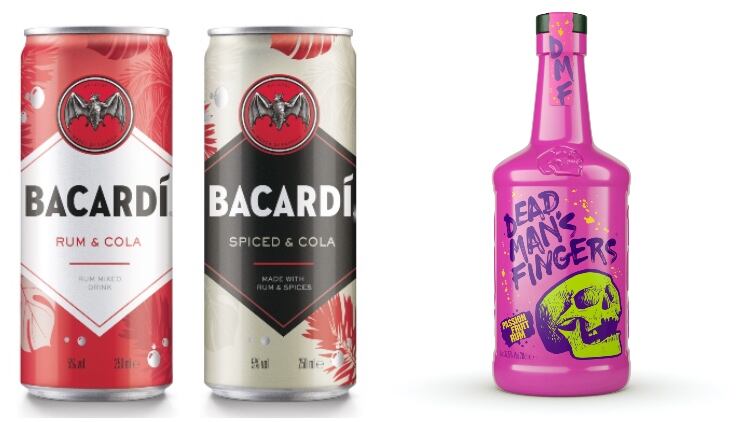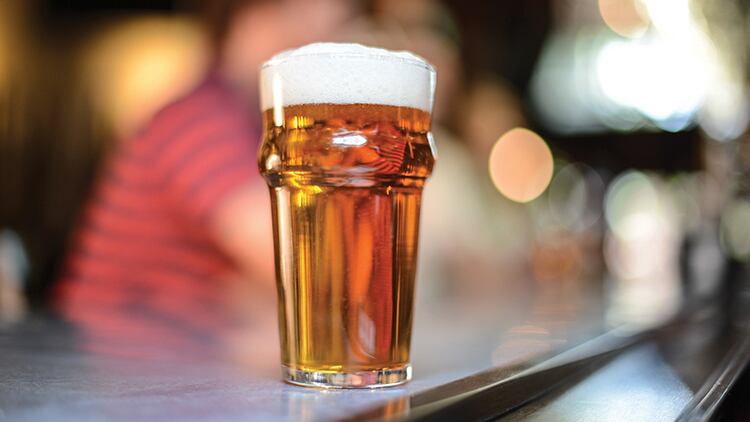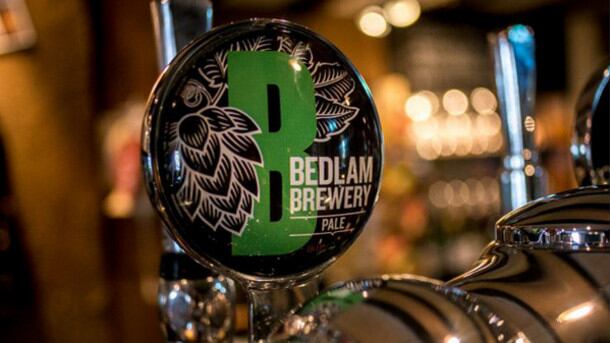As reported by MA, the Government announced its decision to reduce the SBR threshold from 5,000HL of annual production to 2,100HL on 22 July as part of a broader bid to help small businesses via measures including a shake-up of business rates and a pledge to reform the UK’s alcohol duty rates – which are currently among the highest in Europe.
SBR was introduced in 2002 to help small producers become more profitable and mix with the sector’s big players by giving any brewer producing less than 5,000HL – roughly 880,000 pints – an annual 50% discount on beer duty, with tapered relief offered up to 60,000HL.
Though credited with helping grow the number and diversity of beer makers in the UK, critics of the scheme believe it discourages smaller brewers from expanding and warps the overall marketplace.
The British Beer and Pub Association (BBPA) – whose members are responsible for 90% of the beer brewed in Britain and represents around 20,000 of its pubs according to its website – welcomed the threshold change, highlighting that the purpose of scheme is to compensate for diseconomies of scale and ensure bar top variety for Britain’s drinkers.
The trade body’s chief executive, Emma McClarkin added that she hopes the measures announced will build on the scheme’s initial success while supporting growth among brewers of all sizes.
“Following an extensive review, we welcome the Government’s continued commitment to our sector with the announcement on SBR,” McClarkin said.
“Now worth £75m per year to small brewers, the changes announced aim to build on the success of the scheme.”

Restricting customer choice
However, James Calder, the chief executive of the Society for Independent Brewers (SIBA), expressed “huge disappointment” in the Government’s decision, stating that there are around 150 breweries in the UK which, pre-pandemic, sat between 2,100HL and 5,000HL of production volume and will now see their duty payments soar.
The organisation’s stance is that efforts ‘smooth the curve' by removing higher duty cliff edges should be focused above the 5,000HL threshold and not come at the expense of Britain's small brewers – who it believes will now be worse off.
One affected brewer, Nottingham-based Lincoln Green Brewery, has, in the words of its founder and SIBA vice-chair Anthony Hughes, “utilised SBR to great effect” since it was founded in 2012 – establishing an estate of five pubs in that time.
Prior to the Covid-19 outbreak, Hughes’ brewery produced almost 3,000HL of beer per year and was working towards upscaling to 5,000HL by 2022 – climbing over what Hughes refers to as “the cliff edge upon which SBR begins to taper and reduce”.
However, the Government’s decision to reduce the relief threshold on top of the impact of Covid-19, has scuppered Lincoln Green’s growth plans with Hughes estimating that the changes will cost Lincoln Green – a finalist in the 2019 Publican Awards’ Best Brewing Pub Company award – between £8,000 and £20,000 in extra duty per year and potentially halve its profits.
“I think the bit that really frustrates a lot of people is that the reason that the UK has got a really interesting and innovative craft beer scene is because we have a large number of small breweries producing a large amount of choice,” he told MA.
“Moves like this are going to potentially affect small brewers that end up going out of business and then you lose that choice then. All of a sudden, we're back to boring, bland, beer – I don't think anybody really wants that.”
Hughes adds that the broader impact of the Government’s changes on pubs hinges on whether the 150 to 200 brewers affected by the changes can weather the financial implications.
“If those brewers end up going out of business then clearly that's going to lead to significantly less choice on the bar,” he says.
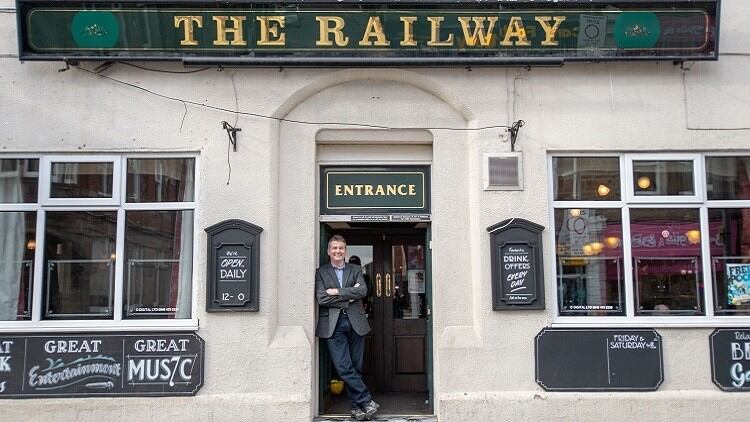
Pub plans curtailed
What’s more, Hughes adds that the Government’s changes could have a potentially profound impact on small, pub operating brewers like Lincoln Green’s ability to expand and maintain pub estates.
“When we set up in 2012, our first pub opened in 2014 and we've almost opened a pub every year since we started trading with a pub company,” he explains. “The reason we've been able to do that is because we've taken the money that we've benefited from in terms of the small brewers tax relief and we've invested it into our own pub estate.
“That way we've had that completely direct route to market which enabled us to be able to breathe new life into what had previously been tired old pubs which were run down and were doing nobody any good.”
Hughes cites Lincoln Green’s most recent opening, the Railway in Belper, Derbyshire, as a prime example. “Belper has just won the UK's best high street award, and 12 months ago we took the worst looking building on the nicest looking high street, we gave it a full refurbishment and it's traded phenomenally successfully ever since,” he says.
“The whole high street looks significantly better because it hasn't got an eyesore in the middle of it anymore, but we couldn't do that again if we had Small Brewers Relief taken away, in any shape or form."
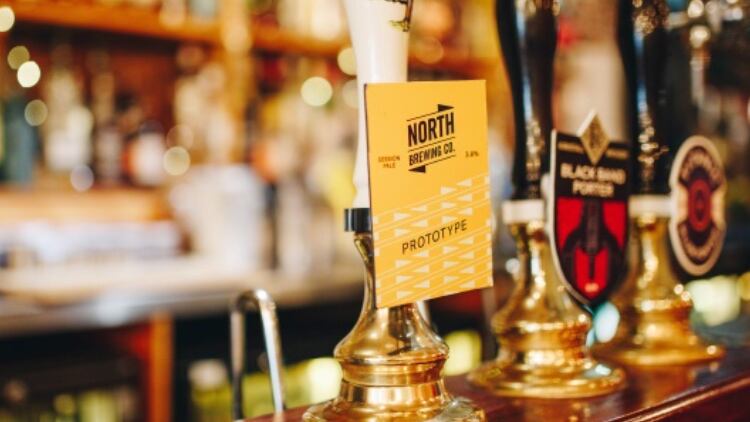
Casualties and job losses
Winner of Best Brewing Pub Company award and a finalist in the best new pub/bar category at the 2020 Publican Awards, Leeds-based North Brewing Co’s sites boast products from a number of breweries who produce “fantastic beer” and will be significantly worse off after the Government’s changes, according to co-founder Christian Townsley.
“The line up on the taps across the country will get less interesting, and the beer festivals and collabs that inspire us will lose key players,” he explains.
While North currently produces more than 5,000HL, meaning the changes won’t affect them directly, the brewer and bar operator benefited from SBR when starting out according to Townsley, who argues that Britain’s beer and on-trade scenes are more interesting and dynamic places due to the contribution and creativity of smaller producers.
“I fear that by reducing the threshold breweries that may have had a modest, sustainable business contributing to the UK brewing industry overall and local employment may now find themselves breaking even at best," he adds. "They may face a real challenge and massive decision; take the hit of the extra duty, scale down, or grow significantly.
“And for those of such a scale and without ability to fill cans or bottles this news comes after several months of having no pub, bar or restaurant trade at all. I've no doubt this is a big blow to the industry and will see breweries go under and job losses occur.”

Drinker demand
According to a petition started by Campaign for Pubs demanding that Chancellor Rishi Sunak reconsider his amendments to the SBR threshold, the Government’s changes are “bad for publicans, pubs and pub customers.”
“SBR has also led to pubs being able to buy and offer a far greater choice, including from distinctive local breweries, which enhances the pub experience for regular customers, visitors and tourists – who quite rightly and reasonably expect to be able to sample local independent produce when they visit a characterful local pub run by a local business,” it states.
“Many pubs remain tied to restrictive contractual agreements which limit their access to these independent beers. It is a mark of how important that choice of a small independent brewery beer is to the customer, that those pubs are prepared to pay a premium to their controlling pub company or pub-owning brewery in order to feature them – but they should be allowed to buy them direct and at a fair price for pub and brewer.
“If pubs themselves are to survive the long forthcoming period of recovery then they will be helped on the way by greater diversity on the bar, not less.”
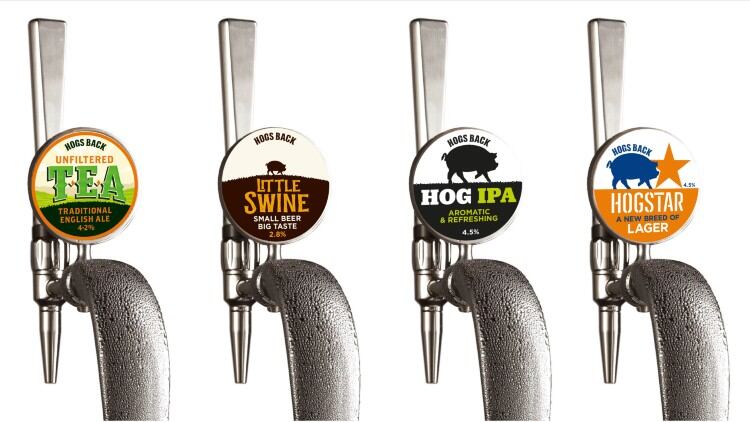
Modest and reasonable
However, like the BBPA, Surrey-based brewer Hogs Back – which has been brewing since 1992 and supplies pubs from Stonegate, Mitchells & Butlers and JD Wetherspoon – “broadly welcomed” the Government’s changes to SBR, describing them as a “step forward”.
“The SBR system was introduced in 2002 to compensate small brewers for their diseconomies of scale,” a statement from the brewer read. “It has been hugely helpful in supporting new brewers to enter the market and the total number of brewers in the UK has grown from around 600 at the time to over 2,000.
“However, it had unintended consequences, which has led to market distortion and particularly led to a catastrophic fall in the profitability of cask ale.”
While acknowledging that the changes will make “very little difference” to Hogs Back in financial terms, the establishment of what the brewer sees as a “fairer system orientated to growth” will give it the confidence to reinvest in its cask ale portfolio – something it doesn’t feel it can afford to do presently.
“The reform of SBR appears modest and reasonable, and not an outrage demanding calls for boycotts or personal attacks such as we have seen.
“Many of us will want to keep talking constructively to the Treasury to influence the final shape of the curve and of the mechanics of transitional merger relief, and we will continue to ask for a carve out for export volume and to support the call for a rolling monthly moving annual total calculation for Small Brewers Relief.”
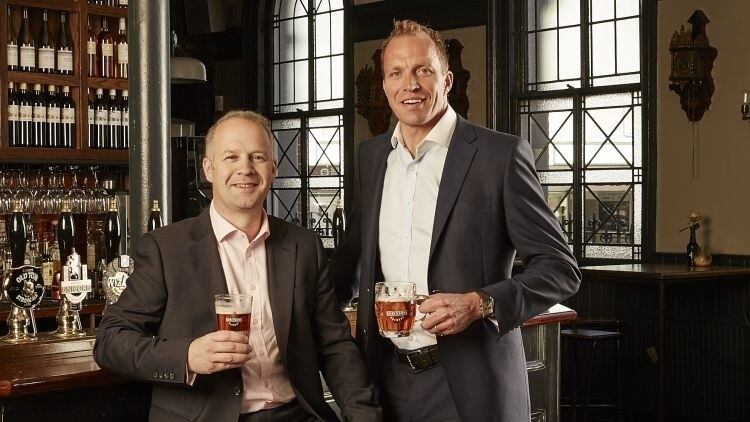
Fairer to those ‘falling in the middle’
Additionally, Stockport-based brewer and pub operator Robinsons – which operates 260 pubs, inns and hotels across the north west – also responded favourably to the Government’s measures.
“Robinsons Brewery is very supportive of the Government’s commitment to reviewing Business Rates as well as SBR which will hopefully make the whole system fairer to breweries such as ours who do not currently take any benefit from the £75m of relief which goes to smaller breweries,” a spokesperson said.
“We are members of SIBA yet currently fall in the middle between smaller breweries who can access this benefit and the larger ones who can deliver great economies of scale leading to lower production costs.
“Indeed, we will happily support any efforts by trade bodies such as the BBPA to address alcohol duty as we look to emerge from the Covid-19 crisis.”

